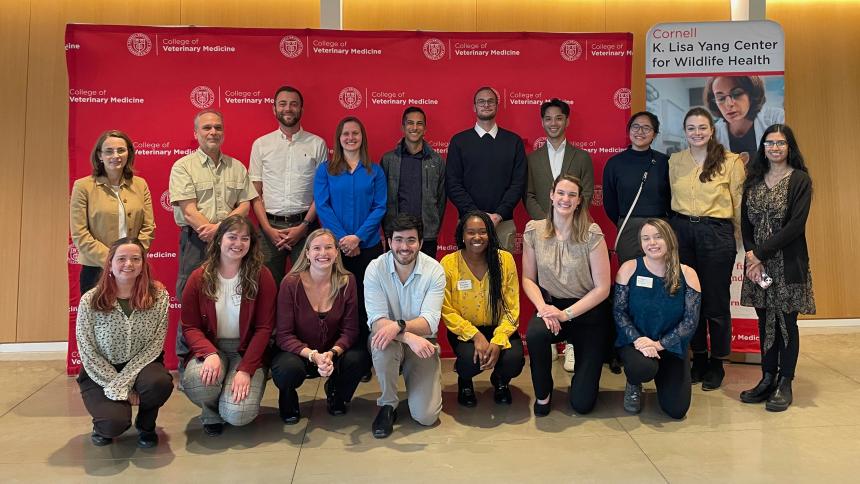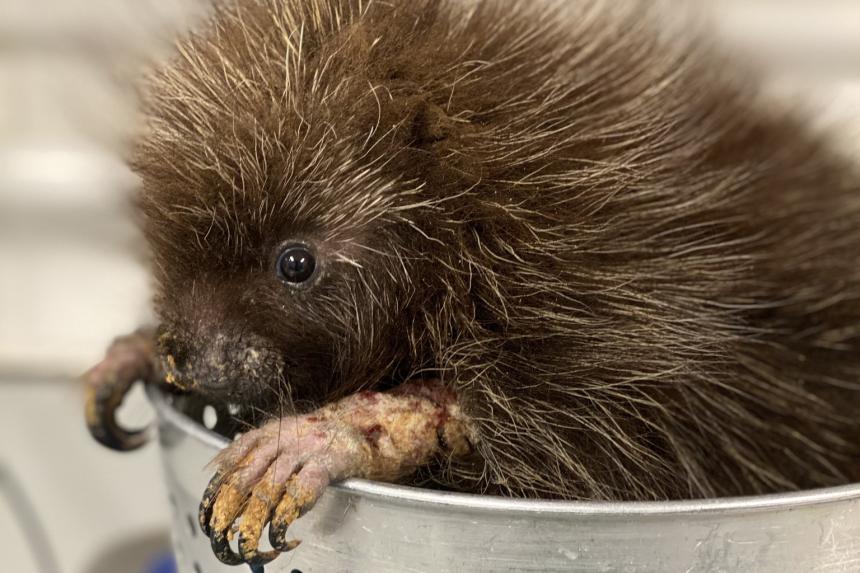In the News

Video
January 22, 2026
In this eCornell Keynote presentation, Drs. Sara Childs-Sanford, Cynthia Hopf-Dennis, and Taylor Haefs from the Janet L. Swanson Wildlife Hospital discuss how their team cares for over 2,000 patients each year and what’s being learned about the wider disease and environmental threats to wildlife in the northeastern U.S....

November 04, 2025
The Cornell K. Lisa Yang Center for Wildlife Health has launched a new residency in wildlife population health, building on the Cornell University College of Veterinary Medicine's leadership in preparing veterinarians to meet the urgent and evolving challenges facing our planet’s wild species.

Podcast
September 30, 2025
A day with Dr. Childs-Sanford is anything but ordinary. Follow her through the fast-paced, unpredictable world of wildlife care at the Janet L. Swanson Wildlife Hospital.

July 18, 2025
The Janet L. Swanson Wildlife Hospital, which has more than tripled its caseload over the past decade, is renovating its facilities to treat an increasing number of injured or ill native wild animals.

July 09, 2024
The student-led Zoo and Wildlife Society at the Cornell University College of Veterinary Medicine hosted their second annual Wildlife Conservation Day featuring a diverse set of speakers.

For Your Information
July 05, 2024
Check out this new paper led by Cornell zoological medicine resident Dr. Laura St. Clair and an interdisciplinary Cornell team studying sarcoptic mange in wild North American porcupines.

Video
March 11, 2024
Dr. Sara Childs-Sanford, associate professor and section chief of wildlife medicine, describes opportunities for veterinary students at the Cornell University College of Veterinary Medicine.

January 30, 2024
A transformational gift from philanthropist and Cornell alumna K. Lisa Yang ’74 will endow and rename the Cornell Wildlife Health Center as the Cornell K. Lisa Yang Center for Wildlife Health at the College of Veterinary Medicine.

November 17, 2023
While avian influenza has affected multiple bird populations and a range of mammal species across the world, the Cornell Janet L. Swanson Wildlife Hospital has optimized its use of clinical medicine, practical precautions, and collaboration to effectively manage the risk of disease transmission among birds in the hospital, and from birds to mammals, including humans.

October 17, 2023
A black bear being treated at the Cornell Janet L. Swanson Wildlife Hospital tested positive for a Salmonella strain that had not been seen in animals in the U.S. before. A joint study between the hospital and Dr. Kevin Cummings helped detect the outbreak quickly and prevent the bacteria from spreading further.
